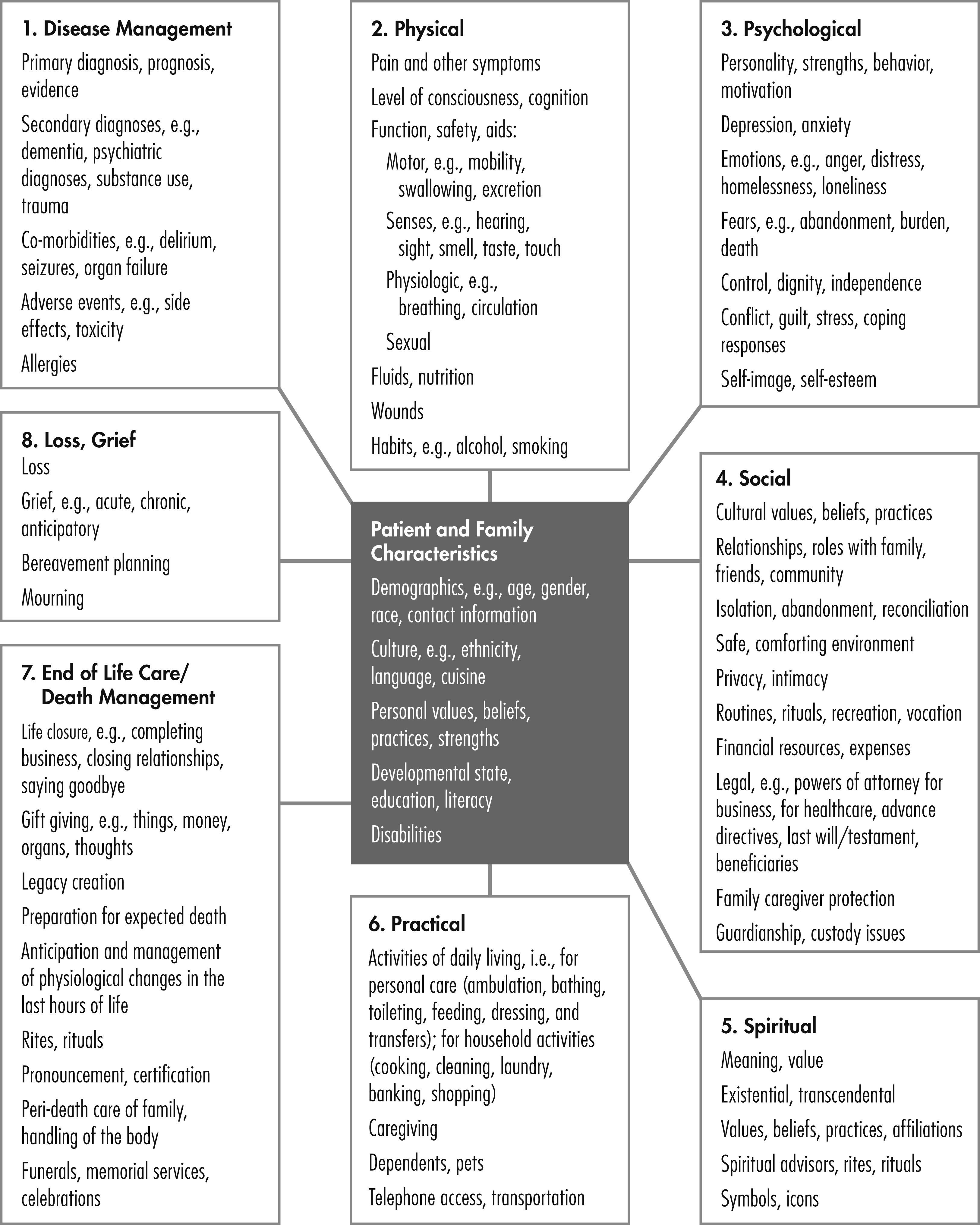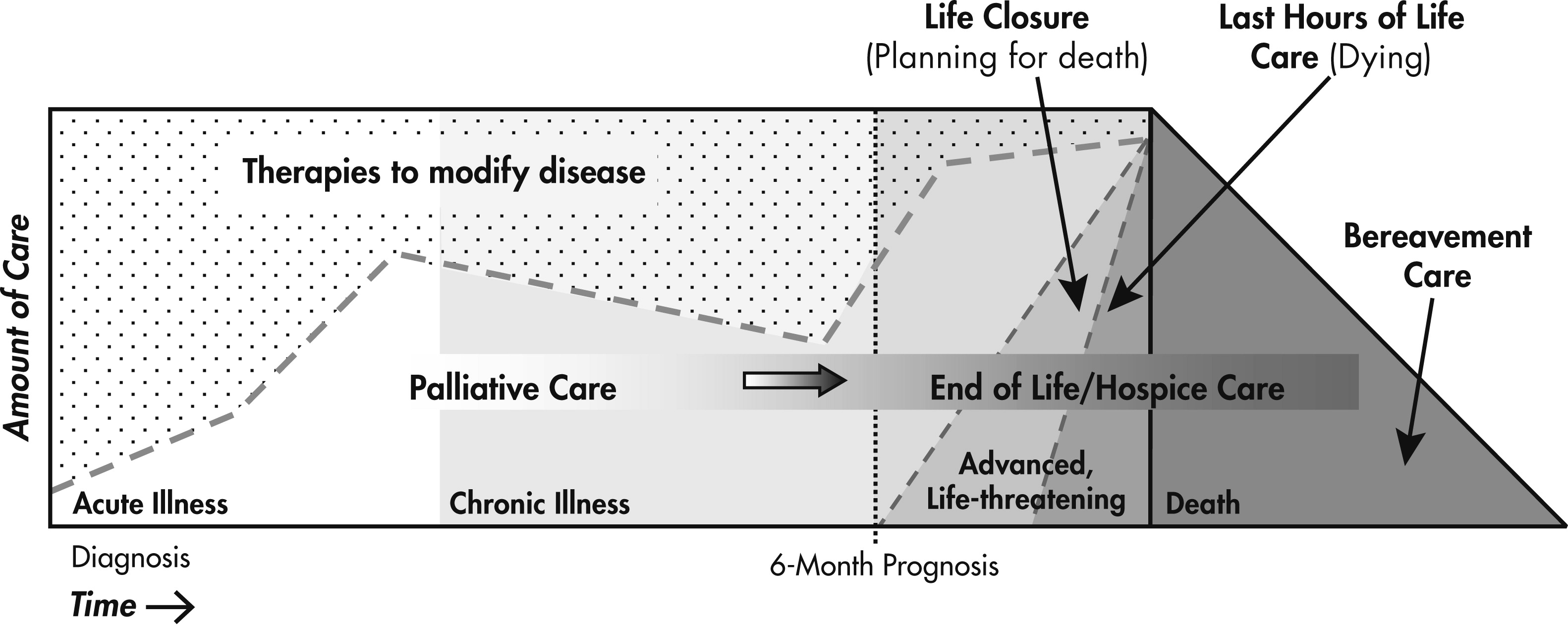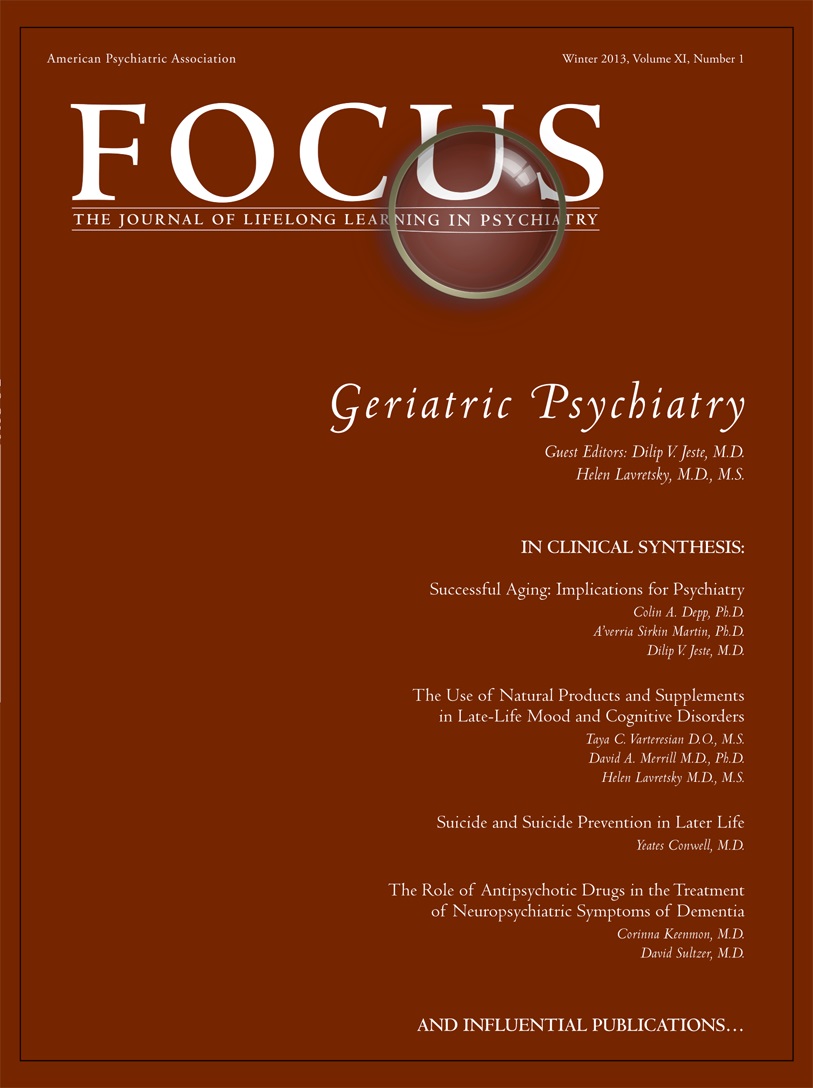Palliative care is the newest body of knowledge and skill in healthcare and is focused on caring for those with chronic, advancing, and serious illnesses, along with helping their families. It includes a wide range of therapeutic interventions that aim to prevent and relieve suffering caused by the multiple issues patients, families, and caregivers face, and the needs these create, at any stage during an acute or chronic serious illness (
Figure 1). The concept of palliative care was first introduced in Canada in the mid 1970s. It derives from the Latin verb
palliare, which means
to cloak, to comfort, and grew out of, and includes, hospice care—specialized care for patients and families near the end of the patient’s life. Palliative care is specialized medical care for people with serious illness, the goal of which is to improve quality of life for both the patient and their family (
1,
2). The focus of palliative care is on providing relief from pain, other physical symptoms, and psychosocial distress, whatever the underlying diagnoses. It is provided by a team of doctors, nurses, social workers, spiritual counselors, and other specialists, all of whom work with a patient’s other doctors to provide an extra layer of care. Palliative care is appropriate at any age and any stage of a serious illness, including dementia, and it may be provided concurrently with curative treatment (
1,
2). When curative treatment is no longer an option, or no longer opted for, palliative care may become the sole focus of care. Hospices provide this type of focused, enhanced, palliative care to patients and families when cure is no longer being pursued and prognoses are short. Hospice care includes interventions to help patients and families close their lives together, manage the last hours of life, and provide bereavement care for family who survive the patient’s death, all as part of the palliative care package they provide (
Figure 2) (
1,
3).
While some physicians provide primary (basic) and secondary (advanced) palliative care, most are not yet comfortable with this new knowledge and skill set. Similar to other medical specialties, interdisciplinary services specializing in palliative care provide tertiary (expert) consultative services to manage challenging and complex situations, particularly when goals of care shift to focus more on comfort and quality than cure. Today, palliative care consultation is increasingly available in acute and long-term care facilities, in ambulatory outpatient settings, and in patients’ homes. Specialized palliative care and hospice inpatient units and free-standing facilities also have become available to care for patients with complex issues, and when goals of care shift to focus solely on palliative care and/or the patient can no longer be cared for adequately at home.



